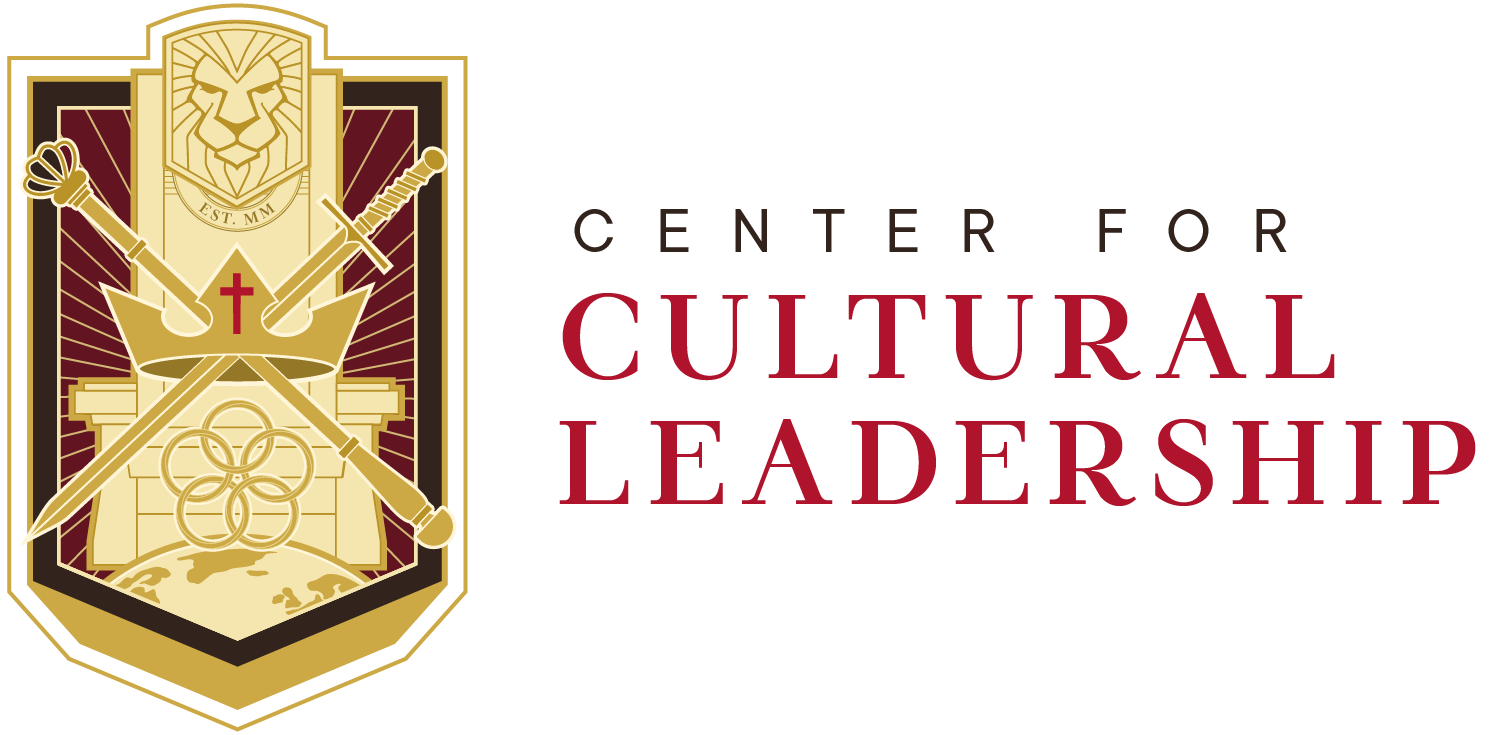The Lost Christendom
Nobody reading these lines has ever seen Christendom. Christendom began with Constantine’s public affirmation of Christianity in the 4th century; engulfed both Eastern and, later, Western Europe; and then shaped the European colonies in the New World. It was Byzantine and Roman Catholic and (later) Protestant.
Christendom died incrementally, first in Western Europe by the mid-18th century under the pressures of the Enlightenment and its subsequent reaction, Romanticism. In the United States after the Civil War, Christendom was shredded by Darwinism, higher Biblical criticism, and secular democracy. Christendom in the East was always subservient to the state, and when the state became atheistic (Marxist) in Russia in 1917 and in Eastern Europe in 1945–1946, Christendom simply collapsed.
What was Christendom? It was the visible, public affirmation of Christianity by nations and cultures. It was Christian civilization marked out by Trinitarian baptism, profession of the ecumenical Christian creeds, and allegiance to the Bible and to the Faith once for all delivered to the saints (Jude 3). Christendom was a ubiquitous, transnational way of life shaped by the Bible and Christian tradition. National political leaders weren’t just Christians in their private lives — they were expected to apply their expression of Christianity (however warped and imperfect) in the state. Likewise, law, music, education, literature, science, technology, poetry — all aspects of life were expected to pay tribute to Jesus and Savior and Lord. Society was to be a Christian culture.
Christendom wasn’t perfect — far from it — but it was a concrete historic reality.[1]
Christendom has always had enemies — from outside it was assaulted by Islam. Even fringe sectors of Christians like the Anabaptists decried it. But Christendom’s biggest enemy became the Enlightenment. Make no mistake: some early Enlightenment figures like John Locke and Thomas Jefferson were Christian or at least Christian-influenced. Yet over time, the chief tenet of Enlightenment[2] — that no authority could sit in judgment on human reason, that man’s reason and experience were the measure of all things — suffocated Christendom. The earliest and most violent public exhibition of this suffocation was the French Revolution, which swept away a corrupt and tyrannical state along with a corrupt and effete church. What replaced a corrupt church and state was infinitely worse than its predecessors — as the Parisian guillotine could attest. The French Revolution was the mother of all violent secular revolutions — in Russia, China, Korea, Cambodia and Vietnam. Wherever those secular revolutions prevailed, Christendom vanished.
In established liberal democracies like England and the United States, the revolution was not violent, but it was no less successful. Secularization won out by gradually (democratically, culturally, subtly, peacefully) capturing the public schools and universities, the major foundations, the arts, and politics.[3] This means of cultural take-over was no less effective than violent revolution — just as Hitler’s democratic election in the Weimer Republic installed him no less securely than a revolution would have.
Today Christendom is a distant memory — or no memory at all. Secularism is an “invisible ideology”; it’s a way of life almost nobody questions and almost everybody takes for granted. This aversion to or ignorance of Christendom is understandable — secularists want a secular world, not a Christian world — and they’ve got one.
Christians and Christendom
What’s harder to understand is the Christian assault on Christendom. After all, wouldn’t you think that Christians would want the Gospel to change the world and for Jesus to be Lord of all things everywhere? Yes, you’d think so. But you’d be wrong. Large sectors of contemporary Christianity deplore Christendom — they think the church took a disastrous turn with Constantine and that in many ways secularism has saved the church from Christianity’s long-time civilizational dominance.
If that idea sounds perverse, it’s because it is. Here are two recent examples of this perversity.
Brian McLaren’s Emergent Masochism
Brian McLaren, noted pastor and godfather of the Emergent Movement, rightly intertwines Christendom and Western civilization — and laments both. He deplores “Western Christianity’s dark side,” by which he means its colonialism, market economics, white privilege, institutional racism, militarism, and so on.[4] This is common liberal and secularist drivel. Of course, Christendom was far from perfect (lamentably there were [for example] racists in Christendom, just as there were — and are — racists among secularists). But, by and large, Christendom brought to the West (over time) political liberty, individual rights, economic prosperity, protection for minorities, and artistic excellence. To secularists who scoff at this assertion (“Wasn’t Christendom rife with religious persecution, political tyranny, poverty, and retrogressive culture, until secularism liberated the world?”) the answer is simply, No. These tragedies did at times exist in Christendom — and it was in Christendom in which they were mostly abolished. Christendom doesn’t eliminate sin, but it does have recourse to the sources that mitigate sin — namely God and His Word.
Brian McLaren’s hatred (the word is not excessive) for Christendom seems a form of spiritual masochism. He wants a weak, marginal faith.[5] He rightly knows that Paul said that God’s strength was perfected in Paul’s personal weakness (2 Cor. 12:9), but McLaren seems to miss the King of kings and Lord of lords who rules the world in might, judging his enemies (Rev. 11–21) and vesting his saints with godly, humble dominion and stewardship of the world (Eph. 1:15–23; Rev. 2:26; 3:21; Dan. 7:18–27). Brian opts for weak-kneed Christianity, which he equates with real Christianity. Christendom isn’t compatible with weak-kneed Christianity, so Brian simply jettisons it.
David VanDrunen’s Reformed Anti-Christendom
A second example of aversion to Christendom is David VanDrunen, professor at Westminster Seminary California, an avowedly Reformed institution. The historically alert reader may be scratching his head. Has any sector of the church (aside from Roman Catholicism) so stressed Christendom than Reformed Christianity? Wasn’t Calvin committed to a distinctly Christian Geneva? And did not Zwingli and Bucer and Bullinger and Knox affirm Christendom? They did. But Dr. VanDrunen isn’t happy with this.[6] Christian culture is the visible exhibition of Christendom, but David opposes Christian culture, or, rather, radically redefines it as the church.[7] VanDrunen wants a churchly Christianity and no distinctive Christianity outside the church. He mildly criticizes Calvin, who “was living in the midst of Christendom”[8] mistakenly assimilating Christendom at times. But VanDrunen’s bigger targets are Abraham Kuyper and the “Neo-Calvinists.”[9]
Kuyper, a towering figure in Reformed history,[10] was a pastor, theologian, university president and for a time even prime minister of the Netherlands. He was an unflagging advocate of Christian culture and, therefore, of Christendom. His heirs (the “Neo-Calvinists”) are even worse, according to VanDrunen, for wanting to redeem all of culture and subordinate it to Christ the King, Christianizing everything. This is the Christian cultural mandate, God’s original commission to Adam and Eve to steward the earthy for his glory (Gen. 1:28–30), taking humble dominion in the earth, though this commission has now (since the Fall) been adapted to account for sin and redemption. VanDrunen holds that this program is wrong on three counts.
First, it devalues the church, since the Neo-Calvinists believe the kingdom is bigger than the church. If the kingdom is bigger than the church, then Christendom is a distinct possibility.
Second, Neo-Calvinism swerves from the New Testament, which is mostly about the transitory nature of life, heavenly citizenship and suffering, not about Christianizing culture.
Third, Christians shouldn’t take earthly stewardship or exert godly dominion as Adam was commanded to do since Jesus, as the Second Adam, has already done that for them.
What do we say to these objections? They are wrong.
First, the kingdom is bigger than the church. Jesus preached about the kingdom all the time (Mt. 3:2; 4:17; 6:10; 18:3; 19:14; 21:43; 25:1, 14, 34; 26:29) and only rarely talked about the church, at least in his utterances recorded in the Bible (Mt. 16:18; 18:17). Of course, Jesus didn’t have to use the word “church” to refer to it, but nobody reading the Gospels would get the impression that the church is identical to the kingdom. The kingdom is God’s reign in the earth now centered in the Messiah (1 Cor. 15:24–28). The church is his body of believers in the earth (Eph. 1:22–23, 5:22–32). The church is a critical aspect of the kingdom. Both church and kingdom are vital; but the kingdom is bigger than the church.
Second, the New Testament talks plenty about the transitory nature of life, heavenly citizenship and suffering, but these aren’t its only life orientation, and, after all, the Bible, not just the New Testament, is our source of authority. Jesus assures his disciples that the obedient will be blessed in this life (Mk. 10:30); he calls his followers to disciple all nations, not just individuals (Mt. 28:18–20); and he promises that all those united to Jesus are heirs of the entire world, not just heaven (Rom. 4:13). The New Testament promises temporality, heavenly citizenship and suffering, as well as godly dominion, blessings, and Gospel success.
Third, Jesus did indeed take dominion, but his faithful followers join him in his dominion task (Rom. 16:20; Rev. 2:26; 3:21). Jesus’ obedience in taking dominion as the Second Adam was not in order that we need not obey in assuming Adam’s task. Jesus’ initiatory, redemptive obedience makes our responsive, non-redemptive obedience possible (Rom. 5:12–6:1–23).
David writes that God never designed Christianity to build civilizations,[11] but he hasn’t offered a persuasive Biblical case for this view, and he has implicitly verified that he is breaking with significant elements of his own tradition in assaulting Christian civilization.
Rebuilding Christendom
If Christians are charged with stewarding the world for God’s glory; if we are commissioned to disciple all nations; if Jesus is Lord of all things, not just the family and church — then rebuilding Christendom must be an objective of Christianity. I said “rebuilding Christendom,” not resurrecting Christendom. Constantinian and medieval and Reformation Christendom had their day and made their contribution. What we must be after today is a new Christendom built on the best aspects of the past but open to new ideas and practices in line with the Bible.
But it’s premature to start rebuilding Christendom full-tilt as long as the vast majority of Christians are assaulting or oblivious to it. As badly as we need a revival of fervent prayer and holiness, godly parenting in the family, a church drenched in devotion to Jesus Christ and powerful preaching and communion, and the Christianization of art, education, politics, science, law and so on — we need as much for Christians to radically reorient themselves to the Lordship of Jesus Christ and his comprehensive claims on us that require Christendom.
When Christians return to the idea of Christendom as an operating assumption and not merely a pleasant historic artifact or even an objective, we’ll be on our way to a restored godly world.



Leave a comment